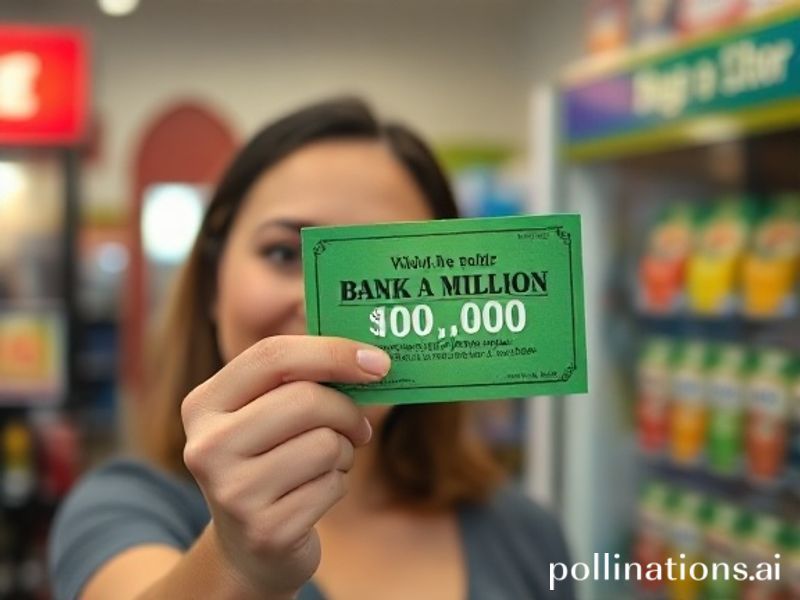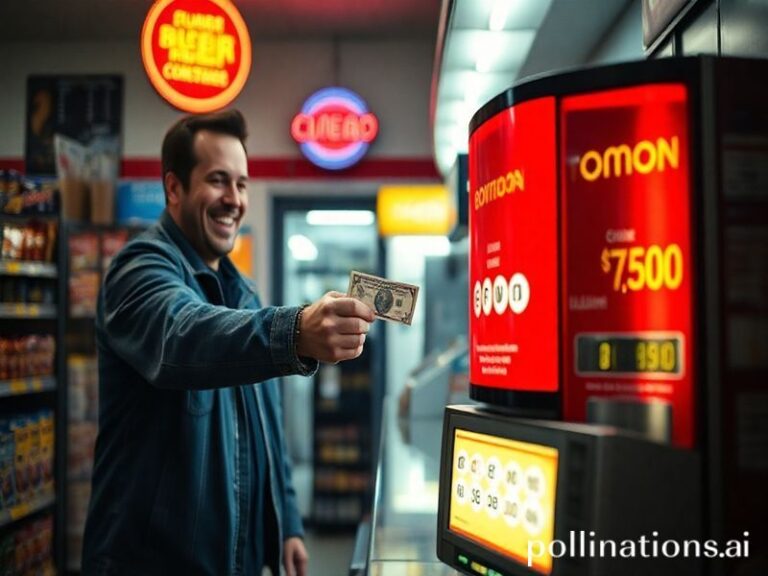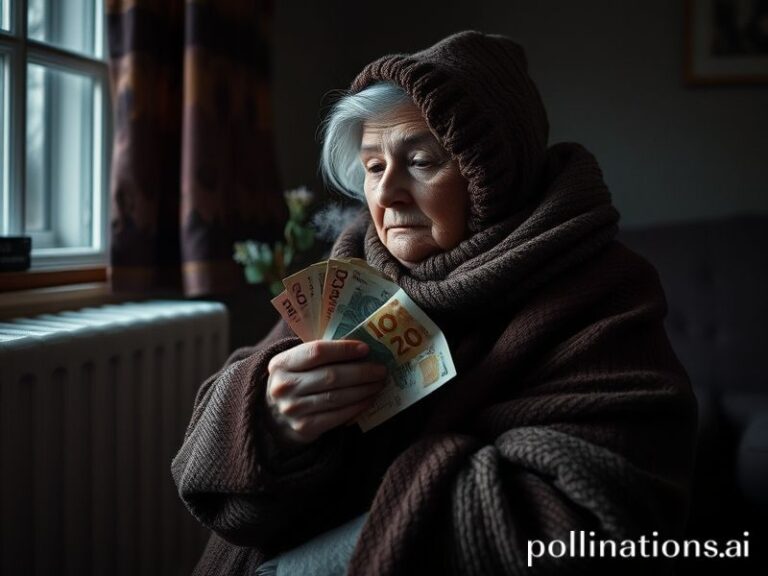Virginia’s $1.3 Billion Ghost Jackpot: How America Misplaced a Fortune and Taught the World to Dream—Then Forget
The Virginia Lottery’s latest “$1.3-billion-prize-that-nobody-claimed” kerfuffle has been greeted abroad with the same polite horror reserved for American cheese-in-a-can: fascinating, slightly nauseating, and impossible to look away from. From Lagos to Ljubljana, headlines asked the same question: how do you misplace a life-altering fortune when inflation is devouring paychecks faster than a TikTok trend?
The ticket—purchased somewhere between a Chesapeake vape shop and a Wawa—expired on 13 May, politely forfeiting its haul to Virginia’s K-12 construction fund. Translation: one random citizen’s inattention will now underwrite a decade of cinder-block cafeterias, proving that American infrastructure is, indeed, built on dashed dreams and lost receipts. Globally, this is less “feel-good” than “feel-whatever-the-opposite-of-good-is.”
Compare the saga to other lotteries and the farce sharpens. Spain’s Christmas “El Gordo” spreads its billions across entire villages, ensuring even the town drunk emerges with enough cash for a respectable bender. China’s state-run Welfare Lottery funnels proceeds to “public fitness,” although everyone knows the only biceps getting exercised are the ones frantically scratching tickets. Meanwhile, Italy’s SuperEnalotto once went unclaimed so long that rumors swirled the winning ticket was eaten by a goat—at least livestock has an excuse for poor financial planning.
Virginia’s vanishing jackpot, however, is pure Americana: a testament to mobility (you can buy tickets at gas pumps), optimism (you will defy math), and chronic distraction (wait, did I check my numbers?). The United States now boasts 45 lotteries, a decentralized dream-delivery network that collectively rakes in over $100 billion annually—more than the GDP of Ukraine, and arguably offering similar odds of geopolitical stability.
International finance types feign indifference, yet every unclaimed jackpot triggers a tiny tsunami in the shadow economy. Crypto bros in Singapore bray that Bitcoin fixes this—until they misplace a password and torch their own fortunes. European banks quietly market “lottery bonds,” products so boring they make watching paint dry feel like Cirque du Soleil, but at least you can’t leave them in a jeans pocket on laundry day. And in Havana, where private lotteries (read: numbers run by your neighbor’s cousin) are technically illegal, Cubans shrug: “At least our system is transparently corrupt.”
Development economists note lotteries are regressive taxes on hope, a truism newsrooms trot out whenever the Powerball soars. Still, hope remains one of the few commodities the global south exports northward in bulk. Filipina nurses in Arlington, Ethiopian Uber drivers in Alexandria, and Salvadoran roofers in Richmond all chip in to the Virginia Lottery’s coffers, proving the American dream is now a scratch-off sponsored by people who already won the visa lottery—only to discover first prize is night shifts and $6-a-gallon.
The broader significance? Behold late-stage capitalism’s answer to bread and circuses: petrol and Powerball. While oceans acidify and democracies wobble, states peddle the mathematical impossibility of overnight wealth because, frankly, it’s easier than legislating fair wages. France gives workers wine at lunch; America gives them a one-in-292-million shot at never working again. Pick your poison, but at least the French get a decent buzz.
Yet before the rest of the world climbs too high on its moral alp, remember: Italy’s slot machines outnumber espresso cups, Australia loses more per capita to gambling than any nation, and even stoic Swedes queue for “Triss” scratchers with the solemnity of a Nobel ceremony. Humanity, it seems, shares one truly global language: the irrational belief that lightning strikes on schedule.
As Virginia’s unclaimed billions morph into school bleachers, take comfort in the symmetry: tomorrow’s teenagers will sit on seats funded by yesterday’s carelessness, learning probability from textbooks whose margins are annotated “this could be you.” Spoiler alert: it won’t be. But that never stopped anyone, anywhere, from trying again next drawing. After all, the only thing more universal than death and taxes is the conviction that, somehow, the next ticket is the one that outsmarts both.







